
The crew of the April and Brothers, a Mi’kmaw fishing boat that sunk in a Nova Scotia harbour say the boat was sabotaged.
“I’m going to be back fishing for sure, this isn’t going to stop me,” said Mi’kmaw fishermen Ashton Bernard. “They’ll have to shoot me before that happens.
“This is the only thing I know how to do.”
Bernard, from the Eskasoni First Nation in Nova Scotia, just put the boat in the water last week.
He said he and his crew were fishing lobster out of St. Peters in Cape Breton.
Early in the morning on Boxing Day, he found his boat under water at the wharf.
“I was like, holy shit, this is really happened,” said Bernard. “I was hoping nobody did this on purpose. But they cut the ropes, and untied all the major lines.
“I’m just speechless.”
His uncle and crew mate, Seki Bernard Sr., said he was the last one on the boat and knew right away it was sabotage.
“I’ve been fishing for years. This isn’t my first rodeo,” said Bernard Sr. “It was a bad sight to see, really. I have so many mixed emotions, so discouraged. It’s the holidays. I want to get mad. But then I’m just going to stoop to their level.
“I want people to know what’s going on in their own backyard. Racism is alive and well in Cape Breton.”
(A coast guard official watches as the fishing boat is raised from the water. Photo courtesy: Seki Bernard Sr.)
Bernard Sr. said he’s disheartened, but determined.
He’s also the mechanic for the boat.
“I know I can get it back in the water. They just gave me a mountain of work to do,” he said.
The 10 metre boat was hauled out of the water and the RCMP is investigating but couldn’t be reached for comment.
In a press release issued Saturday afternoon, the Mounties have asked the public for help to solve the case of mischief.
“The initial investigation has determined the incident to be suspicious,” said the RCMP statement.
Ashton Bernard said there are four holes in his hull, though he doesn’t know exactly what caused them.
At first, he thought they were bullet holes, but now after some analysis said they might be drill holes.
Either way, he said, someone sunk his boat on purpose.
His uncle, Bernard Sr., said, “I know lot of non-natives hate us. They need to be educated on our treaty rights. The DFO don’t even respect our fishing rights right now. They’re out here taking our gear.
“There’s no win-win right now. We can’t exercise our rights.”
Though both Bernards have been fishing for years, this is the first year they decided to assert their treaty rights to fish for a moderate livelihood.
The Peace and Friendship Treaty of 1760-61 ensures the right for the Mi’kmaq, Wolastoqiyik, and Peskotomukahti people to harvest resources in order to make a living.
When Donald Marshall Junior asserted those rights to catch and sell eels in 1993, he was charged with illegal fishing by the Department of Fisheries and Oceans (DFO).
His case went all the way to the Supreme Court of Canada and in the 1999, he won.
The Supreme court’s Marshall decision was a major victory for the Mi’kmaq.
But 20 years later, the DFO still has no rules in place for what the Mi’kmaq call a livelihood fishery.
“I’m not going to wait around anymore for them to tell me when to fish or not,” said Bernard. “Or even wait for our governments to make a plan. I said, the hell with it, let’s get our gear ready and go.”
Bernard started fishing for a moderate livelihood this past summer in southwest Nova Scotia and two days in, the DFO seized his lobster catch. He wasn’t charged.
But Bernard and his crew had only been fishing out of St. Peter’s for a week. They dropped traps, but never got the chance to haul them up.
He said there were no incidents with local fish harvesters before the damage that sunk his boat.
But Bernard Sr. said he’s faced some backlash on social media in the days since.
“We aren’t illegally fishing,” said Bernard Sr. “And our boats and gear is a small fraction compared to the non-native commercial fishery. I want people to get more educated, stop being so ignorant and racist to my people.
“This has me fired up, and I’m determined to get that boat back in the water.”
Eskasoni Chief Leroy Denny said he wasn’t surprised when he heard what had happened.
“The racism is there, it’s not going away,” said Denny. “It’s upsetting and really worries me. What if someone was hurt?”
(The RCMP are looking for the public’s help with information about the sinking of the boat. Photo courtesy: Seki Bernard Sr.)
Denny said the government has to accept some responsibility when incidents like this happen.
“The problem is the government hasn’t defined the terms, they haven’t come up with rules for a treaty-based fishery,” said Denny. “Our people want to fish and are tired of waiting. It’s been 20 years but people on the other side, they don’t understand.
“Non-Indigenous fishermen think they own the water and are always saying their livelihood is being trampled on.”
Denny made the point that Mi’kmaw communities contribute to the wider economy and a treaty-based fishery is no different. From buying gear to boat maintenance, there’s economic spin-off beyond the reserve.
“This treaty-based fishery will help everyone. Not just our people. It’ll help everybody,” said Denny. “Our people bring in so much money to the economy. They have to understand that.”
And Denny added that Mi’kmaq like Ashton Bernard have fished for a long time. They have experience and know the rules. He said treaty-based, or livelihood fishing may be outside of the DFO rules, but conservation and safety are still foremost for the Mi’kmaq.
“We will continue to build that process to have a Mi’kmaw fishery with our rules in place,” said Denny. “But in the meantime, there has to be room for our people to access their rights today.”
This isn’t the first incident in Cape Breton.
In October, a fishing boat from the Mi’kmaw community of Membertou was burned at a wharf near Sydney, NS. No word on that investigation.
The RCMP says anyone with information on what happened to Bernard’s boat in St. Peters can call 902-535-2002 or Nova Scotia Crime Stoppers toll free at 1-800-222-TIPS(8477), or go online to submit a tip at www.crimestoppers.ns.ca.



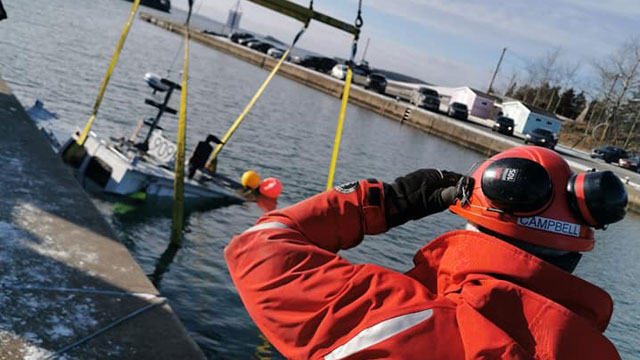
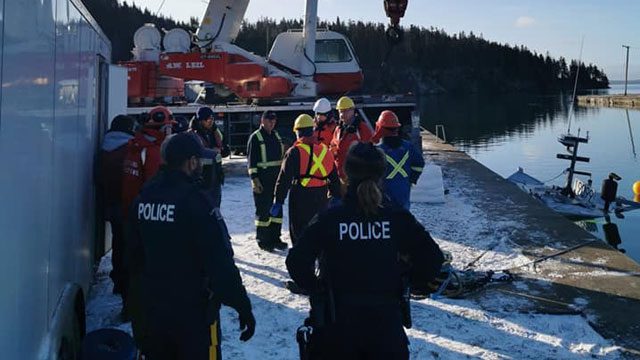


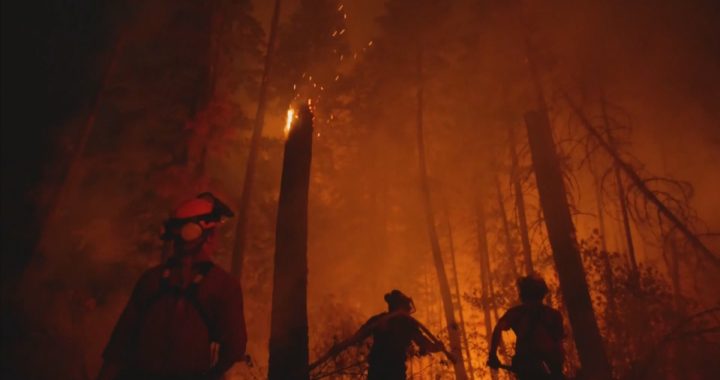

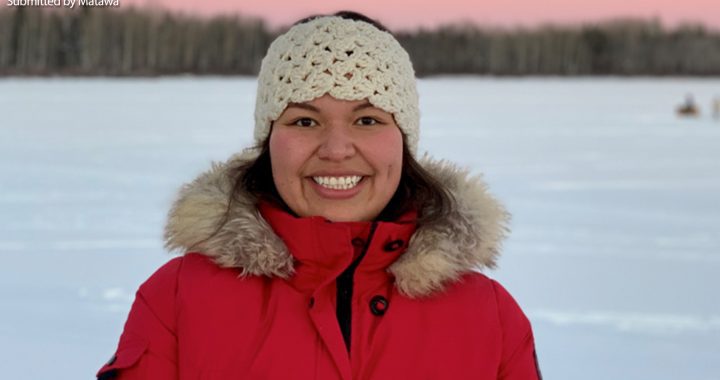
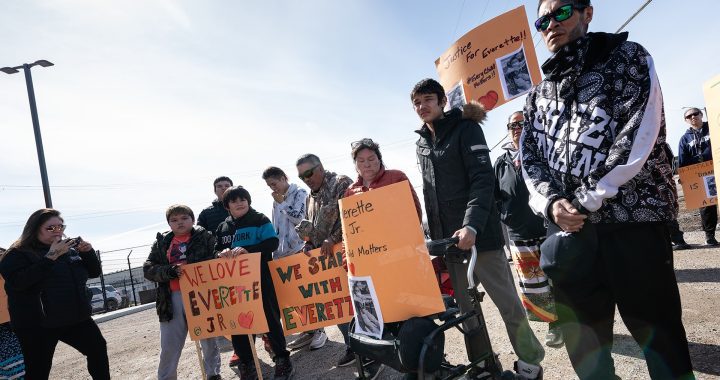
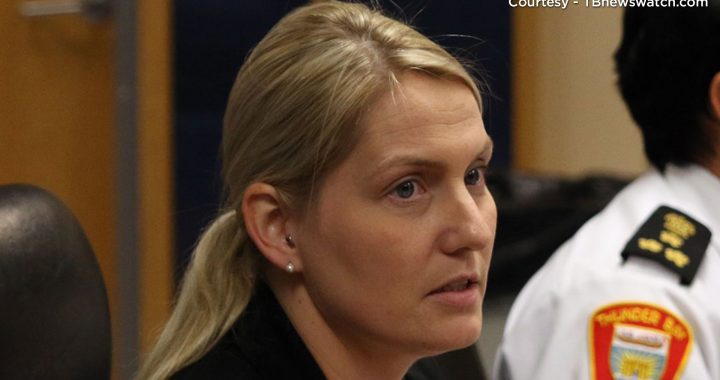
I am beyond outraged at these sabotage attacks on Indigenous people. There are people like me who are not Indigenous but have a like desire to see centuries of injustice and broken treaties end. The injustice began with first contact; will you teach us how to stand in solidarity with you as allies?
I guess the wharf needs cameras or security. What a rotten thing to do!
Equality is for all. When All are treated equally humanity thrives.
Very like the spear fishing controversies in the upper Midwest. A native population denied rights on a long-term basis. A white population,many of whom are marginalized (when compared to other whites), and many of whom (though not all) disdain indigenous peoples. The big difference is that in Nova Scotia it sounds like the basis of a resolution is in place but crafting the rules has stalled out on some boundary between bureaucracy and politics.
Big ole manly men sinking a family’s fishing boat. Real Heros if cowardism and hate ever become hero material. Best wishes to the Bernards. Wish I knew how to buy their catch.
Natives have all the rights to fish and hunt across Canada! White people are jealous, they need to look up History!
I’m not at all sure this is a matter of race. It is more likely a matter of competition to existing fishermen. Until the government figures out how to divide up fishing waters while assuring they continue to be productive there will be conflict. If fisherman A has been fishing a certain section of the fishery for decades and keeping his catch and methods within prescribed practices, the intrusion of fisherman B will hurt fisherman A, because that section of fishery can only supply a defined catch, so fisherman B is impacting A’s livelihood. Not racism, economics.
This should be charged as more than ‘mischief’. This is taking away the livelihood of two families.
I live on the opposite coast and I didn’t think Cape Breton was like this. I thought is was a community that pulled together, that helped one another.
I hope there are decent people there also; people who offer assistance with repairs and with pulling the traps that are out.
RCMP, please do your job well; catch and charge the @%$&* who did this.
This is another case of what is racism in Canada, the government in which is in occupation of Native Lands of North America. I have stated to AANDC , there has to be another approach to stop these situations from reoccurring to Native to the Lands in which the Canadian Business occupies. Otherwise we invite outside protectors. A business of protection agencies who will protect Native peoples of this land from Immigrant attacks.